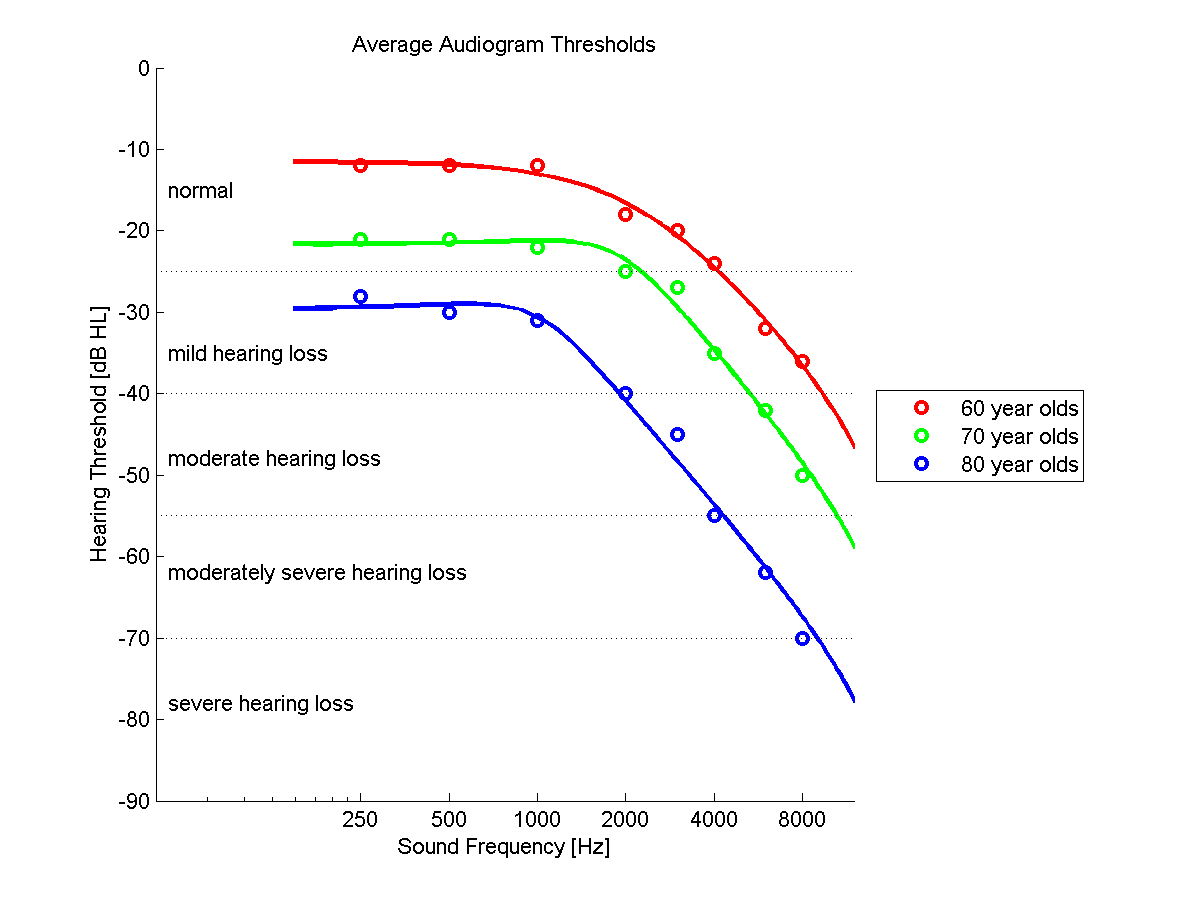As we age, our auditory sensitivity often declines, and the average decline is perhaps a lot more than you might think! Use the buttons below to start or stop a little stand-up comedy video clip, and to select to hear it the way it would sound to an average elderly person some 60, 70, or 80 years old, or someone completely deaf. You can also add "multi-speaker babble" background noise. Hearing the comedian is, unsurprisingly, more difficult in the presence of background noise, but it is even harder with background noise and old age hearing noise.
| Background Noise |
If you are fairly young and your hearing is good, you may be surprised, even appaled, at how much worse the simulated "elderly hearing" is. Is it really that bad? The answer to that is: it depends.

To make this simulation, we filtered the sounds with low pass filters (solid lines in the plot above) fitted to audiometric data (circles) taken from Figure 4 of a 2010 book chapter by Richard Schmiedt entitled "The Physiology of Cochlear Presbycusis". The audiogram data show the averaged hearing thresholds for male subjects sampled at the Medical University of South Carolina. Interestingly, the decline in auditory thresholds in females was not nearly as severe, a fact that has been tentatively attributed to the fact that South Carolina males may spend more of their time with loud machinery and firearms than females, although the real reason is unclear. What is certain is that there is a great deal of individual variability, which is due to both environmental and genetic factors, so hearing impairment at an advanced age certainly need not be nearly as bad as these data and our demo suggest, but the fact that they are based on an average of hearing thresholds measured in a clinical population nevertheless shows that age related hearing impairments as bad, or worse, than what we demo here are sadly not uncommon!
